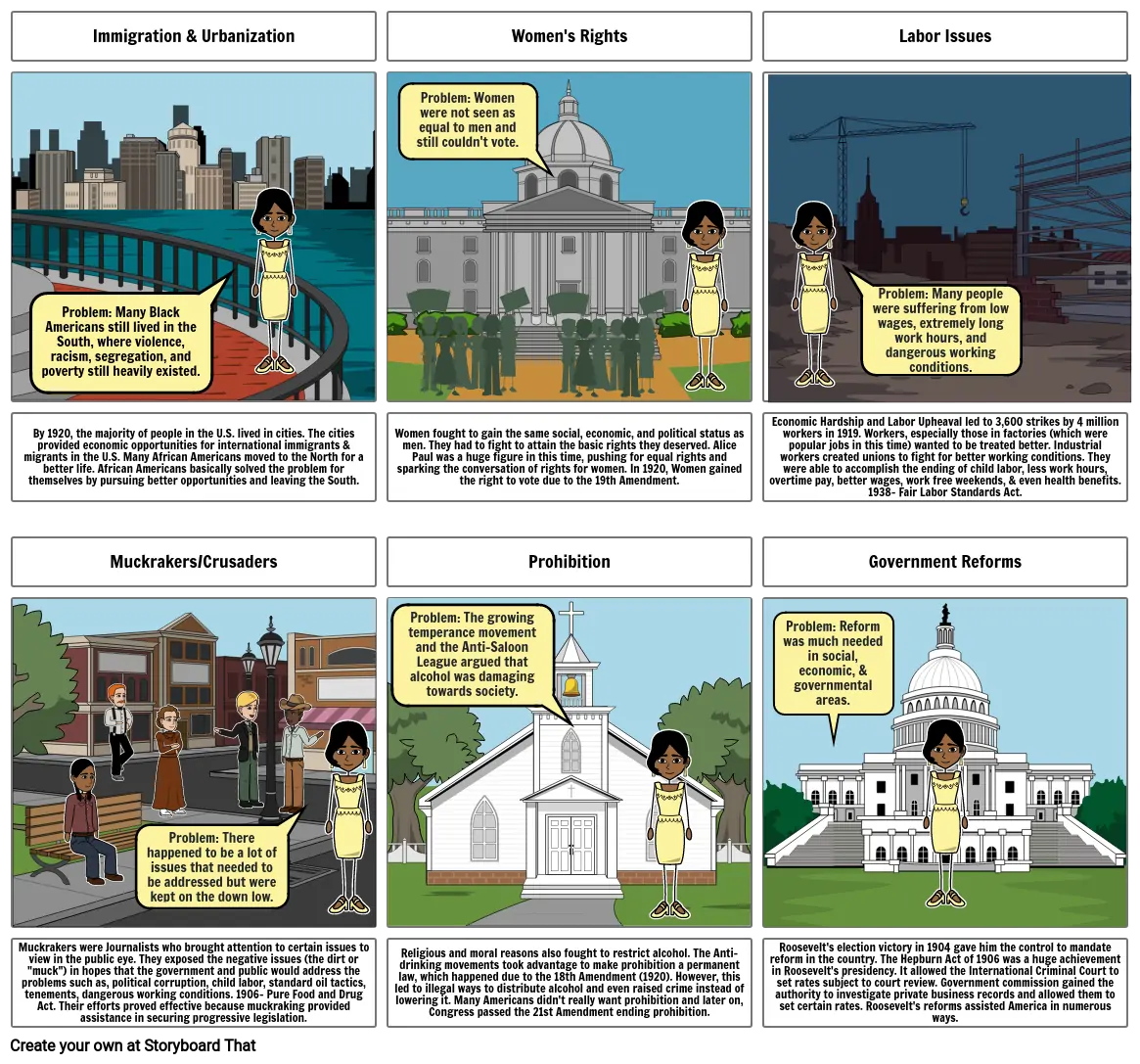Progressive Era Storyboard

Storyboard Text
- Immigration & Urbanization
- Problem: Many Black Americans still lived in the South, where violence, racism, segregation, and poverty still heavily existed.
- Women's Rights
- Problem: Women were not seen as equal to men and still couldn't vote.
- Labor Issues
- Problem: Many people were suffering from low wages, extremely long work hours, and dangerous working conditions.
- By 1920, the majority of people in the U.S. lived in cities. The cities provided economic opportunities for international immigrants & migrants in the U.S. Many African Americans moved to the North for a better life. African Americans basically solved the problem for themselves by pursuing better opportunities and leaving the South.
- Muckrakers/Crusaders
- Women fought to gain the same social, economic, and political status as men. They had to fight to attain the basic rights they deserved. Alice Paul was a huge figure in this time, pushing for equal rights and sparking the conversation of rights for women. In 1920, Women gained the right to vote due to the 19th Amendment.
- Prohibition
- Problem: The growing temperance movement and the Anti-Saloon League argued that alcohol was damaging towards society.
- Economic Hardship and Labor Upheaval led to 3,600 strikes by 4 million workers in 1919. Workers, especially those in factories (which were popular jobs in this time) wanted to be treated better. Industrial workers created unions to fight for better working conditions. They were able to accomplish the ending of child labor, less work hours, overtime pay, better wages, work free weekends, & even health benefits. 1938- Fair Labor Standards Act.
- Government Reforms
- Problem: Reform was much needed in social, economic, & governmental areas.
- Muckrakers were Journalists who brought attention to certain issues to view in the public eye. They exposed the negative issues (the dirt or "muck") in hopes that the government and public would address the problems such as, political corruption, child labor, standard oil tactics, tenements, dangerous working conditions. 1906- Pure Food and Drug Act. Their efforts proved effective because muckraking provided assistance in securing progressive legislation.
- Problem: There happened to be a lot of issues that needed to be addressed but were kept on the down low.
- Religious and moral reasons also fought to restrict alcohol. The Anti-drinking movements took advantage to make prohibition a permanent law, which happened due to the 18th Amendment (1920). However, this led to illegal ways to distribute alcohol and even raised crime instead of lowering it. Many Americans didn't really want prohibition and later on, Congress passed the 21st Amendment ending prohibition.
- Roosevelt's election victory in 1904 gave him the control to mandate reform in the country. The Hepburn Act of 1906 was a huge achievement in Roosevelt's presidency. It allowed the International Criminal Court to set rates subject to court review. Government commission gained the authority to investigate private business records and allowed them to set certain rates. Roosevelt's reforms assisted America in numerous ways.
Över 30 miljoner storyboards skapade

